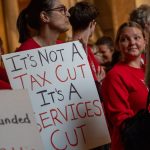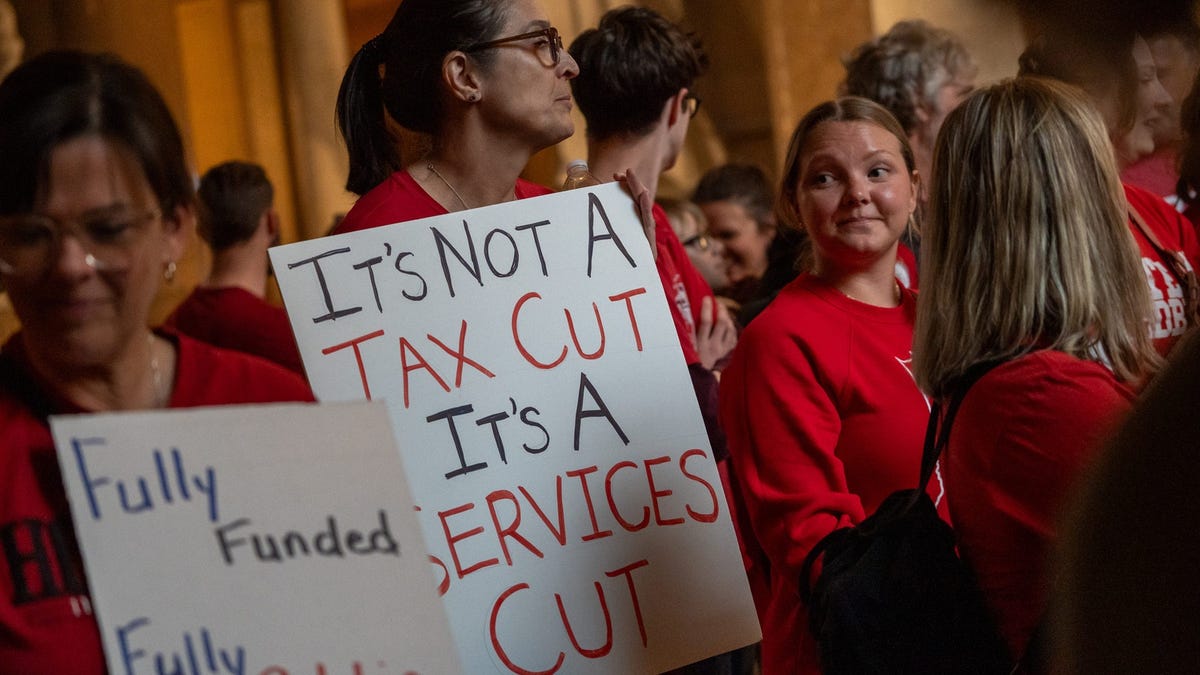President Trump gives his thoughts on Elon Musk amid clash on bill
President Donald Trump responded to Elon Musk’s criticism of his “big, beautiful bill” with disappointment as Musk responded on X.
A centerpiece of President Donald Trump’s tax bill would make millions of Medicaid recipients work, volunteer or study to maintain their publicly financed health insurance.
Republicans say the work requirement is vital to protect taxpayers while motivating nondisabled Medicaid recipients to take charge of their physical and fiscal health. Dr. Mehmet Oz challenged this population to “prove that you matter.”
But health advocacy groups and analysts say most recipients already work in jobs that don’t provide affordable health insurance or pay enough for people to afford their own insurance. They say a Medicaid work requirement − combined with more frequent eligibility checks − would create an administrative nightmare that drops coverage for many who qualify for the public health insurance program for low-income and disabled residents.
What is Medicaid churn?
Medicaid rolls vary from month to month as people lose eligibility because of a new job, a raise or an additional income source that disqualifies them for coverage. A job loss or change in life circumstances could make someone newly eligible.
The constant change of Medicaid rolls is what health policy experts call churn. A person who temporarily loses coverage because of a paperwork problem or a mistake must again sign up.
“Churn is what happens when these eligibility systems become difficult to navigate,” said Jennifer Tolbert, deputy director of the program on Medicaid and the uninsured for KFF, a health policy nonprofit.
The federal government requires state Medicaid programs to check enrollees’ eligibility once a year. The Trump tax cut legislation would require states to double eligibility checks to twice a year. And states would have the added duty of verifying a person’s employment or exemption status.
The legislation, which passed the House and awaits Senate approval, requires Medicaid recipients who are “able-bodied” adults without children to work 80 hours a month or qualify for an exemption such as being a student, caregiver or having a disability. The bill defines “able-bodied” as people who are not medically certified as physically or mentally unfit for employment. The legislation also would strip coverage from undocumented immigrants who get Medicaid through state-funded programs.
Health policy experts say more frequent eligibility checks and red tape will add administrative costs and cut off people who qualify but fall through the cracks because of administrative miscues.
“People are going to have to document work status or exemption status multiple times a year, and at each point there’s a risk that someone who is eligible could lose coverage,” Tolbert said.
Thousands lost coverage under Arkansas work requirement
During the first Trump administration, the Centers for Medicare & Medicaid Services gave states the option of implementing a work requirement for nondisabled adults on Medicaid. Arkansas’ work requirement cut more than 18,000 residents from Medicaid within the first seven months of the program. People were removed often because people were unaware of paperwork requirements to keep their coverage, research shows and analysts said.
In April, a study by researchers from the Urban Institute and Loyola University Chicago found the Arkansas uninsured rate jumped 7.4 percentage points among low-income adults ages 30 to 49 after the state’s work requirement began. The policy’s impact on employment among that age group was “negative, small and statistically insignificant,” the study said.
Arkansas adults who didn’t have access to the internet at home were disproportionately harmed by the policy, a sign adults might have had trouble accessing the state’s online portal to report work histories or exemptions, the Urban Institute said.
If the work requirement for Medicaid recipients is adopted nationwide, health experts say, millions of working-poor Americans will inevitably lose coverage.
The nonpartisan Congressional Budget Office estimated 10.9 million Americans would lose health insurance coverage through 2034 under the legislation. Most would lose coverage because of the Medicaid work requirement and the twice-a-year eligibility checks, but about 3.1 million would become uninsured from tweaks to Affordable Care Act enrollment, according to a KFF analysis.
The ranks of the uninsured could grow larger if Congress doesn’t extend the COVID-19 pandemic-era tax credits that have made ACA plans more affordable for consumers. If the tax credits expire and Congress passes the current version of the Trump tax bill, as many as 16 million Americans would lose coverage , according to the CBO.
“Coverage loss from work requirements should actually be very small,” said Kathy Hempstead, a senior policy officer at the Robert Wood Johnson Foundation, a national philanthropy. “But we anticipate it will be very large, because people will not be able to comply with the requirements and will lose their coverage.”
Dr. Oz: Medicaid spending is ‘crippling the system’
The Trump administration’s top Medicaid official has defended the House legislation as a necessary step to slow spending for the federal health program that covers nearly 80 million low-income and disabled Americans.
In an interview June 4 with Fox Business, Dr. Oz challenged Medicaid recipients who would face work requirements to “prove that you matter.”
Oz, the Trump-appointed administrator of the Centers for Medicare & Medicaid Services, said the work requirement asks “able-bodied individuals who are able to go back to work at least try to get a job or volunteer or take care of a loved one who needs help or go back into school. Do something to show you have agency over your future.”
In a Fox News interview posted on the social media site X, Oz said Medicaid spending has surged 50% since 2019, a pace that is “crippling the system.”
Some Republicans, however, have pushed back on the proposed cuts. In an opinion piece in The New York Times in May, Sen. Josh Hawley, R- Missouri, said “slashing health insurance for the working poor” is “morally wrong and politically suicidal.”
Survey: Americans worried about Medicaid cuts
The public is paying attention to the proposed Medicaid cuts. Slightly more than half of adults said they’re worried significant cuts in Medicaid spending would hurt their family’s ability to obtain and afford health care, according to a KFF health tracking poll released June 6. The survey of 2,539 U.S. adults was conducted online and by telephone over three weeks in May.
The survey showed nearly 6 in 10 adults said the Trump administration’s policies would weaken Medicaid, but there is a stark divide based on party affiliation. Nine in 10 Democrats but just 2 in 10 Republicans expect the administration’s policies would weaken Medicaid. Republicans also were far more likely than Democrats to say the Trump plan’s policies would strengthen Medicaid.
Still, while the survey suggests people are tracking the news, many probably wouldn’t know whether their coverage has changed until they try to get medical care.
“People don’t often know that they’ve lost coverage until they try and fill a prescription or see a doctor,” Tolbert said.
(This story was updated to fix a typo.)








